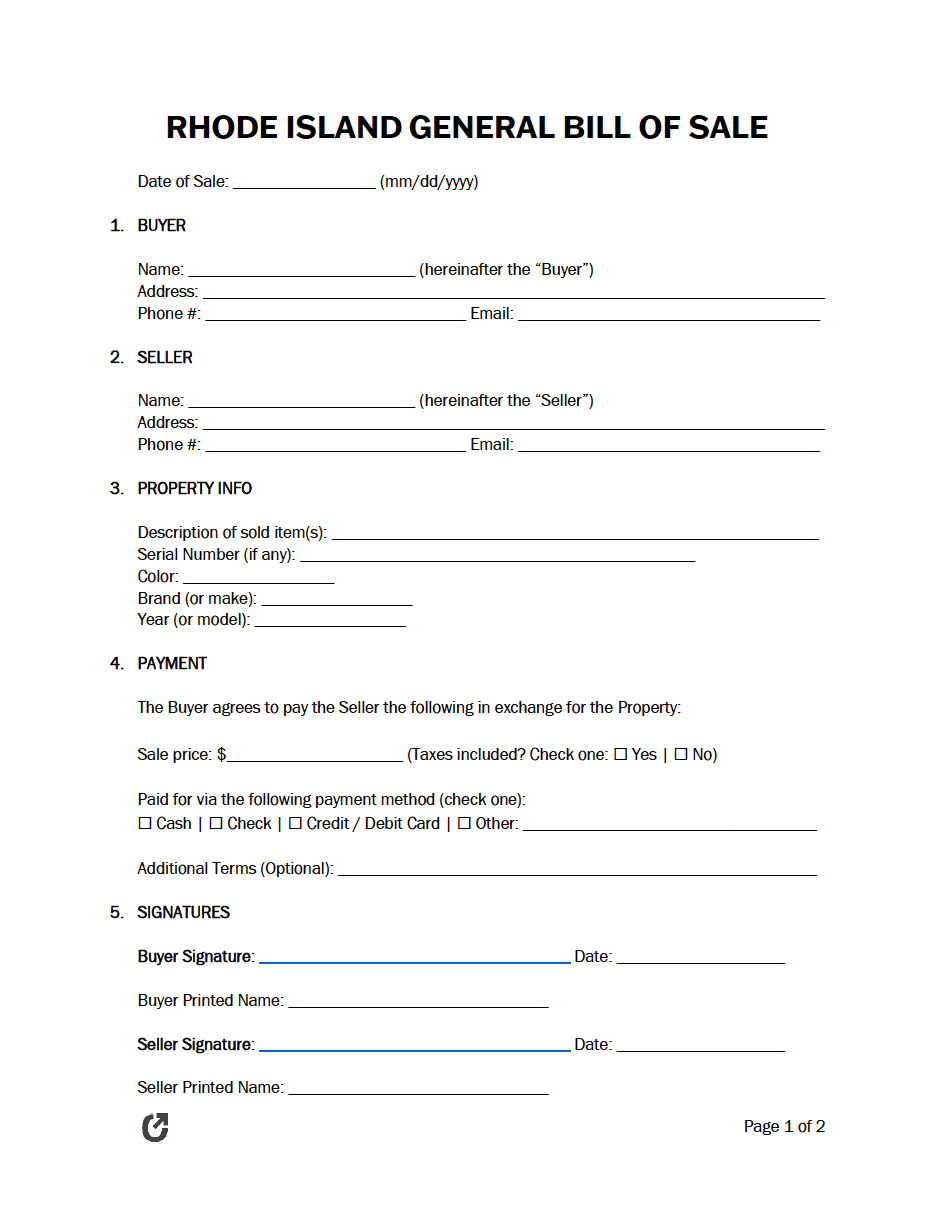Rhode Island General Bill of Sale Form
A Rhode Island general bill of sale form facilitates the transfer of ownership of personal property from a seller to a buyer. This form typically includes detailed information about the transaction, such as a description of the item, the sale price, and the parties’ contact information. It serves as a receipt for the transaction and aids in legal and taxation matters.
| Signing Requirements: All parties involved must provide their signature. |
What is a Rhode Island General Bill of Sale?
A Rhode Island general bill of sale form records the sale and transfer of various types of personal property, such as electronics, tools, furniture, and other non-titled property. It acts as evidence of the transaction and includes crucial information that verifies the change in ownership. This form does not apply to vehicles, boats, or other property types requiring a title transfer through a specific state department.
When is a Bill of Sale Required?
A bill of sale is required in Rhode Island when there’s a private sale of personal property, and the parties want to have a written record of their transaction. Using a bill of sale is especially important when the sold item has significant value or when the buyer requires proof of purchase for registration, insurance, or taxation purposes. Although not always legally mandated for the sale of personal property, it provides security and clarity for both parties involved.
Does this Document Need to be Notarized?
Notarization of a Rhode Island general bill of sale form is not a legal requirement to sell most personal property. However, notarizing the document can provide additional legal weight and help verify the parties’ identity in the transaction. It serves as a recommended step for added security but is unnecessary for the document to be effective. Legal professionals can help determine whether the buyer should have the form notarized. Considering the specific circumstances of the sale can also help to determine whether notarization is appropriate.
